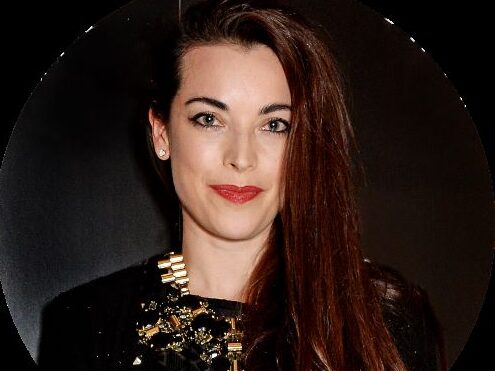
Metro editor Ted Young is stepping down after eight years amid a major print shake-up expected to lead to a number of redundancies at the free newspaper brand.
The changes are being made in response to strong economic headwinds hitting the news industry, including rising energy and newsprint costs alongside a challenging advertising market.
The print and online Metro products will come under the same editor for the first time since 2014, when Metro.co.uk editor Deborah Arthurs was appointed. She will now take on overall leadership.
[Read more: DMG Media restructures ad sales teams due to ‘challenging market’]
Dedicated news content will stop being produced for the Metro newspaper and will instead all come from the Metro website. Content may also be shared from other DMGT brands (for example perhaps the Daily Mail or the i) and come via newswires.
This will be put together by a subbing and production team dedicated to the Metro print edition. The newspaper already contains a mixture of original and agency copy, with bylines in Thursday’s edition split between Metro journalists, freelances and SWNS news agency staff.
Young told Metro staff on Thursday afternoon that the features and supplements that are “pivotal to Metro’s success” will continue with journalists to continue writing these for print. However overall there will be a “reduction of freelance positions”.
Young said that despite pick-up by commuters being “once again strong” and around the one million mark after the Covid-19 pandemic, the newspaper “continues to run at a financial loss that is in no way sustainable”.
Young continued: “That position has been exacerbated by the cost of living crisis we’re facing today. With the Ukraine war, advertising has remained in the doldrums. The bus and rail strikes have certainly not helped us.
“At the same time the price of newsprint has increased exponentially. Fuel and ink cost is now substantially higher – and this all comes off our bottom line.”
Because Metro is a free newspaper, it is “unfortunately… not able to insulate itself from those headwinds by simply putting up its cover price,” Young said.
“Over the past three months, we have worked through every initiative imaginable to help stem the financial losses already described.
“But sadly, this is not enough. For Metro to survive we have no choice but to significantly reduce our editorial cost base.”
Young told staff: “While some roles will remain as is and there will either be no change or a small change – for example reporting line or job title – others will be placed at risk of redundancy. “
At the same time, changes will be made to how the Metro app is produced, introducing “better use of technology and automation”.
The number of roles being put at risk has not been shared as a consultation process has now begun. Also on Thursday staff at DMG Media’s advertising arm Mail Metro Media were told of proposed redundancies because of the impact the “suppressed” advertising market has had on the business. In that shake-up, a dedicated Metro sales team is being created for digital, print, classified and partnerships.
Young will step down in late March after eight years as editor. He praised Arthurs, saying she is “a superb journalist and will take the paper and online teams on to new heights”.

Metro, which is distributed at train stations and other hubs in major cities around the UK, was hard hit during the Covid-19 pandemic because of the sudden switch to working from home reducing its pool of commuter readers who are attractive to advertisers. This led to “substantial losses”.
It was forced to drop its distribution from 1.3 million in March 2020 to under 400,000 but continued to publish because it felt it was important to provide a news service for key workers who continued going out to work. It first got distribution back above one million in May 2021 and in December 2022 its ABC audited figure was 965,960.
Parent company DMGT first warned about the impact of distribution, energy and newsprint costs in November 2021. Since then, costs have continued to rocket and the Ukraine war has had a significant impact on certain areas, such as energy.
Many newspaper publishers have pushed up cover prices to help offset distribution costs. Press Gazette research this week showed cover prices at the UK’s nationals have increased 14% over the past year while Mirror and Express publisher Reach said in a trading update this month that price increases had helped to grow circulation revenue – although this was still more than offset by lower-than-forecast digital and print advertising.
At Metro, however, there is no cover price to increase as it has been run on a free distribution model ever since its launch in London in 1999 – even though Young told Press Gazette in 2017 that as editor his mantra was to “try to be a paper that we would like people to think they would buy”.
Metro made an operating profit even during the darkest point of the recession in 2009, a fact that underlines the impact of current rising production costs.
As well as Metro, parent company DMGT owns the Daily Mail, Mail on Sunday, Mail Online, i, New Scientist, and email newsletter start-up The Knowledge.
Press Gazette understands the changes at Metro are part of a wider restructure to take advantage of growth opportunities it sees globally in digital journalism, including at Dailymail.com, the US arm of Mail Online.
In September, the Daily Mail and Mail Online began to collaborate more after years of producing rival versions of stories, with Mail Newspapers editor-in-chief Ted Verity and Mail Online publisher and editor Danny Groom saying "the time has come to take the next step in the digital revolution by bringing our two superb news gathering operations – the Mail and Mail Online – much closer together to fully harness their formidable story-getting power".
Email pged@pressgazette.co.uk to point out mistakes, provide story tips or send in a letter for publication on our "Letters Page" blog
